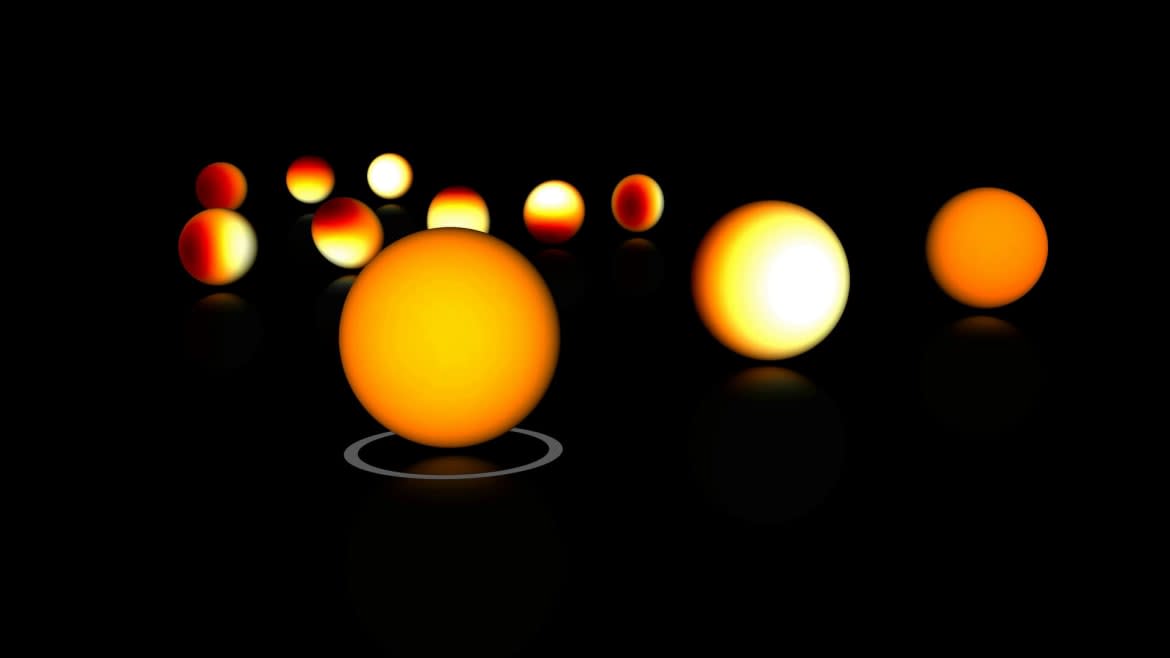Thousands of Tsunami-Sized ‘Starquakes’ Detected Across Space

Thousands of starquakes—yes, like earthquakes but on stars—have been detected by a European space observatory, as part of a discovery that has managed to surprise even the scientists behind it.
The European Space Agency’s Gaia mission released new data on Monday where they revealed that tsunami-like quakes were observed on thousands of stars in the Milky Way galaxy. These starquakes cause motions that change the stars’ shapes and size, shrinking and ballooning while also vibrating with intense energy. The observations are expected to add to the growing field of asteroseismology, or the study of star movements.
“Starquakes teach us a lot about stars, notably their internal workings,” Conny Aerts, a professor at the Institute of Astronomy at KU Luven in Belgium and a member of the Gaia mission, said in a press release. “Gaia is opening a goldmine for ‘asteroseismology' of massive stars.”
One of the most surprising aspects of the discovery was that the Gaia space telescope isn’t explicitly designed to detect starquakes—it’s meant to create the most accurate 3D map of the Milky Way by look at 1 percent of the galaxy’s stars However, the spacecraft was able to detect non-radial oscillations—the scientific term for starquakes—that cause the tsunami-like movements on the astronomical objects. Intriguingly, Gaia even found vibrations in stars that scientists didn’t think would have quakes.
While fairly novel for this specific telescope, starquakes have been observed numerous times in the past. The biggest one was detected back in 2005 in a neutron star dubbed SGR 1806-20. That starquake unleashed enough energy equivalent to a magnitude 32 earthquake, which is a completely unfathomable amount. Unsettlingly, if it had happened within 10 light-years of Earth, it would have triggered a mass extinction event.
So fingers crossed we won’t see any ungodly massive starquakes happen anytime soon near our solar system.
Got a tip? Send it to The Daily Beast here
Get the Daily Beast's biggest scoops and scandals delivered right to your inbox. Sign up now.
Stay informed and gain unlimited access to the Daily Beast's unmatched reporting. Subscribe now.

